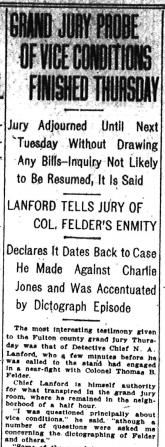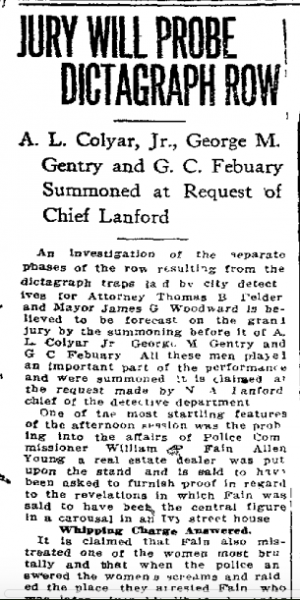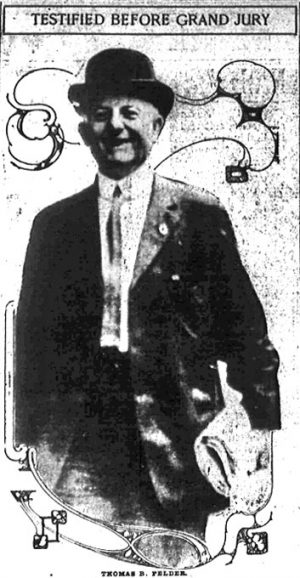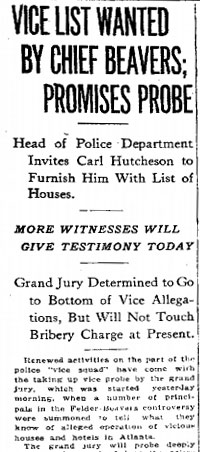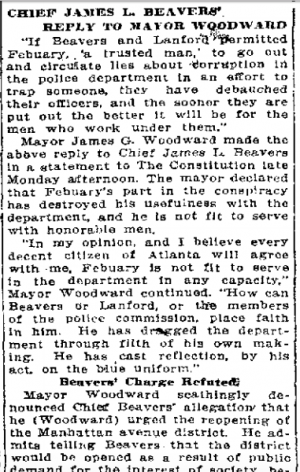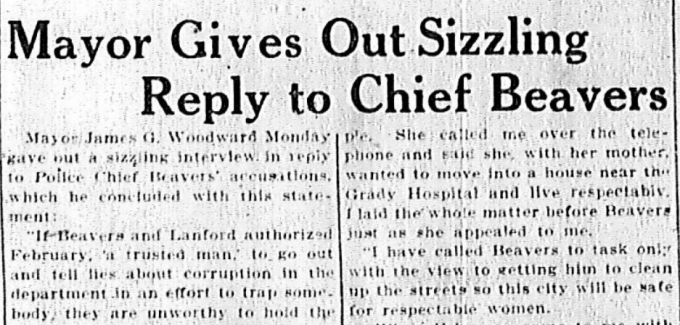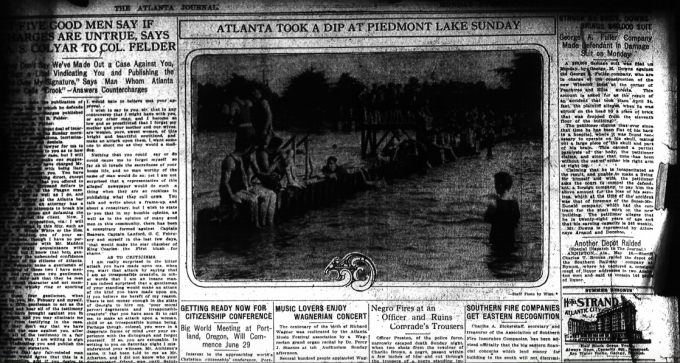Another in our series of new transcriptions of contemporary articles on the Leo Frank case.
Atlanta Constitution
August 2nd, 1913
Gay C. Febuary, secretary to Chief Newport A. Lanford, of the detective bureau, and recent figure in the sensational dictagraph episode, was called to the stand to testify to a statement made by Leo Frank on April 26 in Chief Lanford’s office.
It was during Febuary’s testimony that Frank’s statement was permitted to be produced before the jury. It was read by Attorney Stephens, an associate of Solicitor Dorsey.
Mr. Dorsey questioned Febuary:
“You were present at Lanford’s office when Frank and Luther Z. Rosser were there?”
“Yes.”
“Do you remember having made stenographic report of a statement made by Frank?”
“Yes.”
He was given the report for identification, which he established.
“What was Attorney Rosser doing during the time the statement was made?”
“Looking out of the window most of the time.”
Mr. Rosser began the interrogation at this point.
“You haven’t got a dictagraph with you,have you?” he asked sarcastically.
“No,” was the answer.
“Lanford sent for you to make this statement, didn’t he?”
“Yes.”
“You are Lanford’s private secretary?”
“Yes.”
“He has been chief of police for years?”
“He has been chief of detectives.”
“Chief of detectives, then, that’s just as bad.”
Here Rosser pointed to Lanford, sitting in a chair at the railing.
“That’s he—my handsome friend over there.”
* * *






 Another in
Another in 




